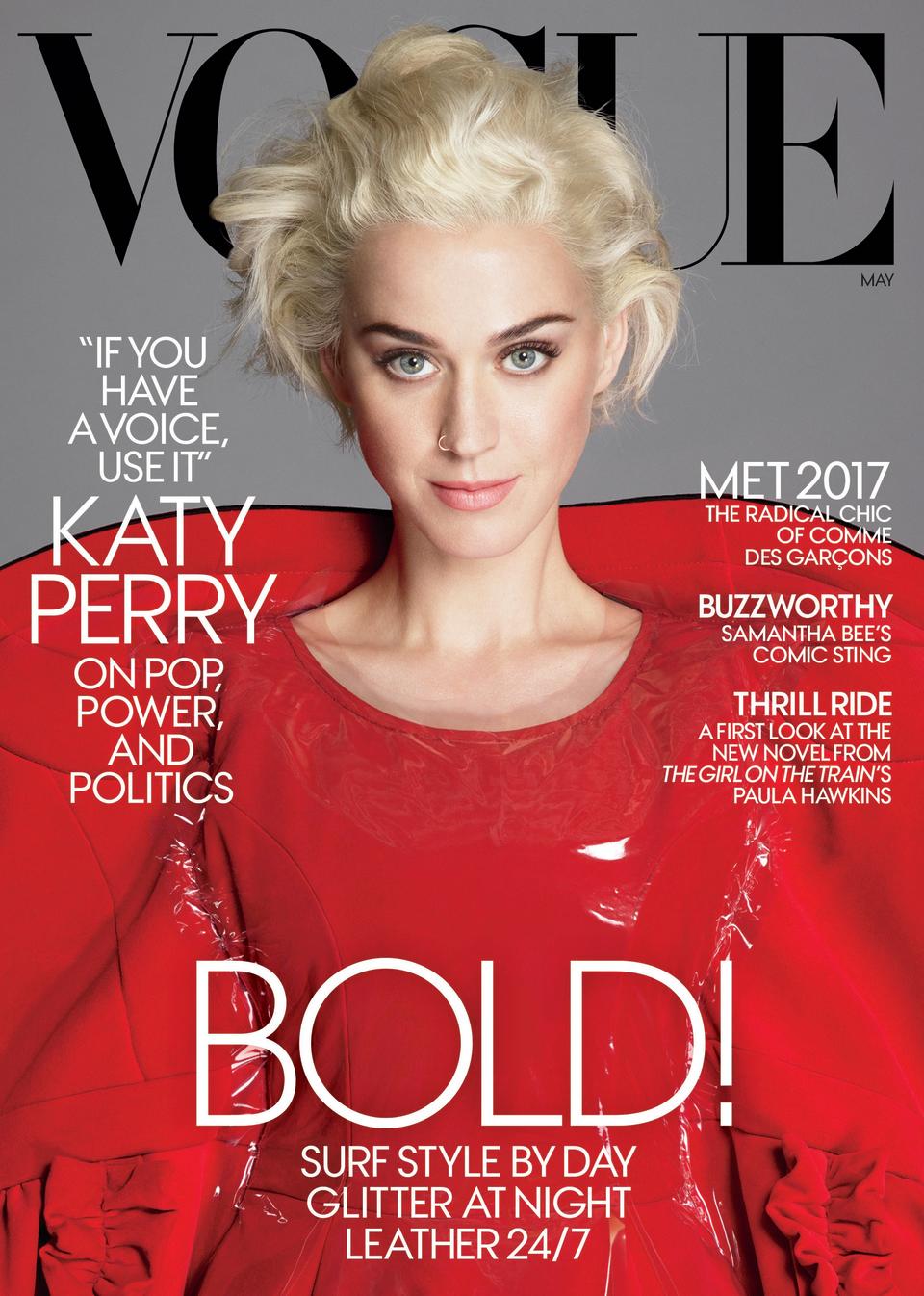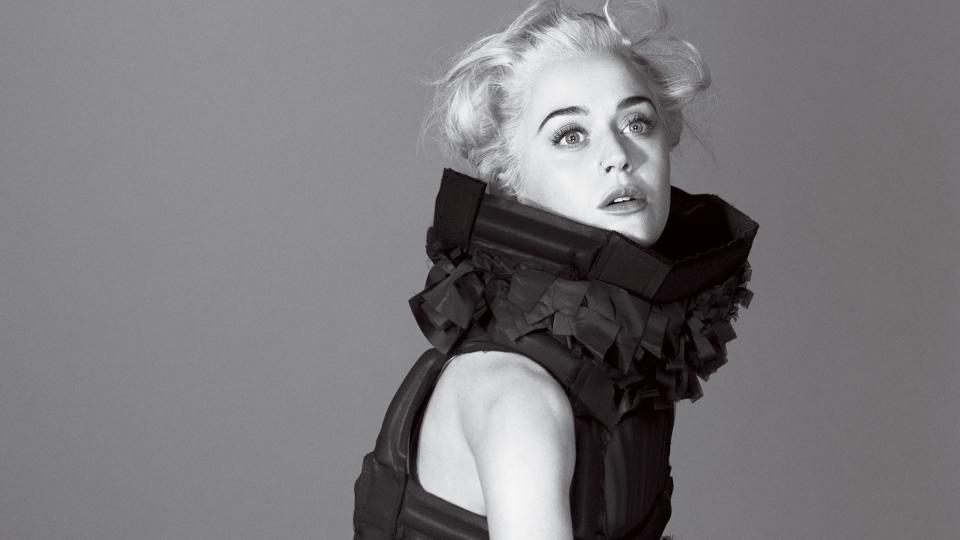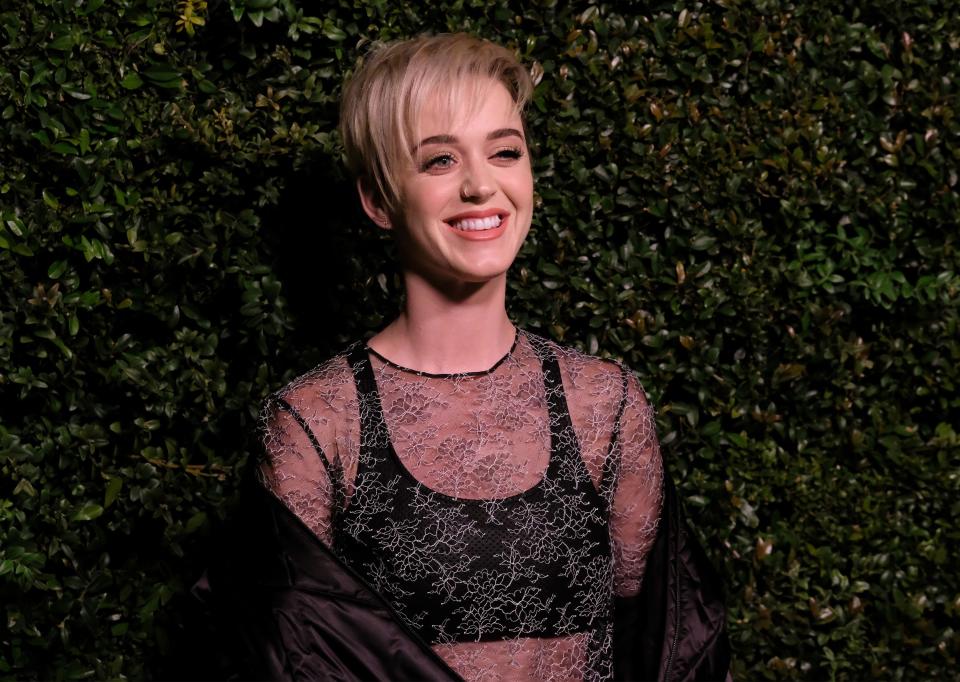Katy Perry Says She "Wasn't Allowed to Interact With Gay People" While Growing Up
By Marissa G. Muller. Photos: Getty Images, Mert Alas and Marcus Piggott/Vogue.
Among today's most political pop figureheads, Katy Perry is at the top. Take her performance at the 2017 Grammys, for instance, where she projected the Constitution onto the stage and herself, clad in a "Persist" armband and a white suit in a nod to her icon, Hillary Clinton. Or, her performance at the Democratic National Convention, where she supported Clinton—whom she later honored with a pair of shoes Katy designed. What you might not be aware of, however, is that it took years for Katy to arrive at that place. In the May issue of Vogue, Katy opens up about her political journey, revealing some pretty personal stories about her ultra-conservative family.
The pop artist's parents were evangelical Christian pastors, and prevented her from interacting with the LGBTQ community until later in life. "Education was not the first priority," she tells Vogue. "My education started in my 20s, and there is so much to learn still." Of her upbringing, she admits she wasn't "allowed to interact with gay people" and "There's some generational racism."
"But I came out of the womb asking questions, curious from day one, and I am really grateful for that: My curiosity has led me here. Anything I don’t understand, I will just ask questions about."
It's that urge Katy wants others to have, more than pressing her own political views onto them. "I don’t think you have to shout it from the rooftops," she says, "but I think you have to stand for something...If you have a voice you have a responsibility to use it now, more than ever."
What inspires her is that she sees so many young people doing just that, which was a silver lining for her amid Clinton's loss to President Donald Trump. "I was really disheartened for a while; it just brought up a lot of trauma for me," she says of the aftermath of the 2016 election. "Misogyny and sexism were in my childhood: I have an issue with suppressive males and not being seen as equal. I felt like a little kid again being faced with a scary, controlling guy. I wouldn’t really stand for it in my work life, because I have had so much of that in my personal life. But it’s an awakening that was necessary because I think we were in a false utopia...we can’t ever get that stagnant again. I am so grateful that young people know the names of senators. I think teenage girls are going to save the world! That age group just seems to be holding people accountable. They have a really strong voice—and a loud one." In other words, they roar.
Read the complete story and see the photos from her cover shoot on Vogue.com, and pick up the issue on newsstands April 25.
This story originally appeared on Glamour.
More from Glamour:
What's That Salad the Kardashians Are Always Eating on Their Show?
A Look at the Emmy It Girls of the Past 20 Years: Taraji P. Henson, Tina Fey, and More
Major Skin Mistakes You're Making in Your 20s, 30s, and 40s
The Ultimate 10-Minute Workout
25 Celebrity Haircuts That’ll Make You Want Bangs, Stat
31 Ways to Wear a Ponytail, for Every Hair Length and Texture



